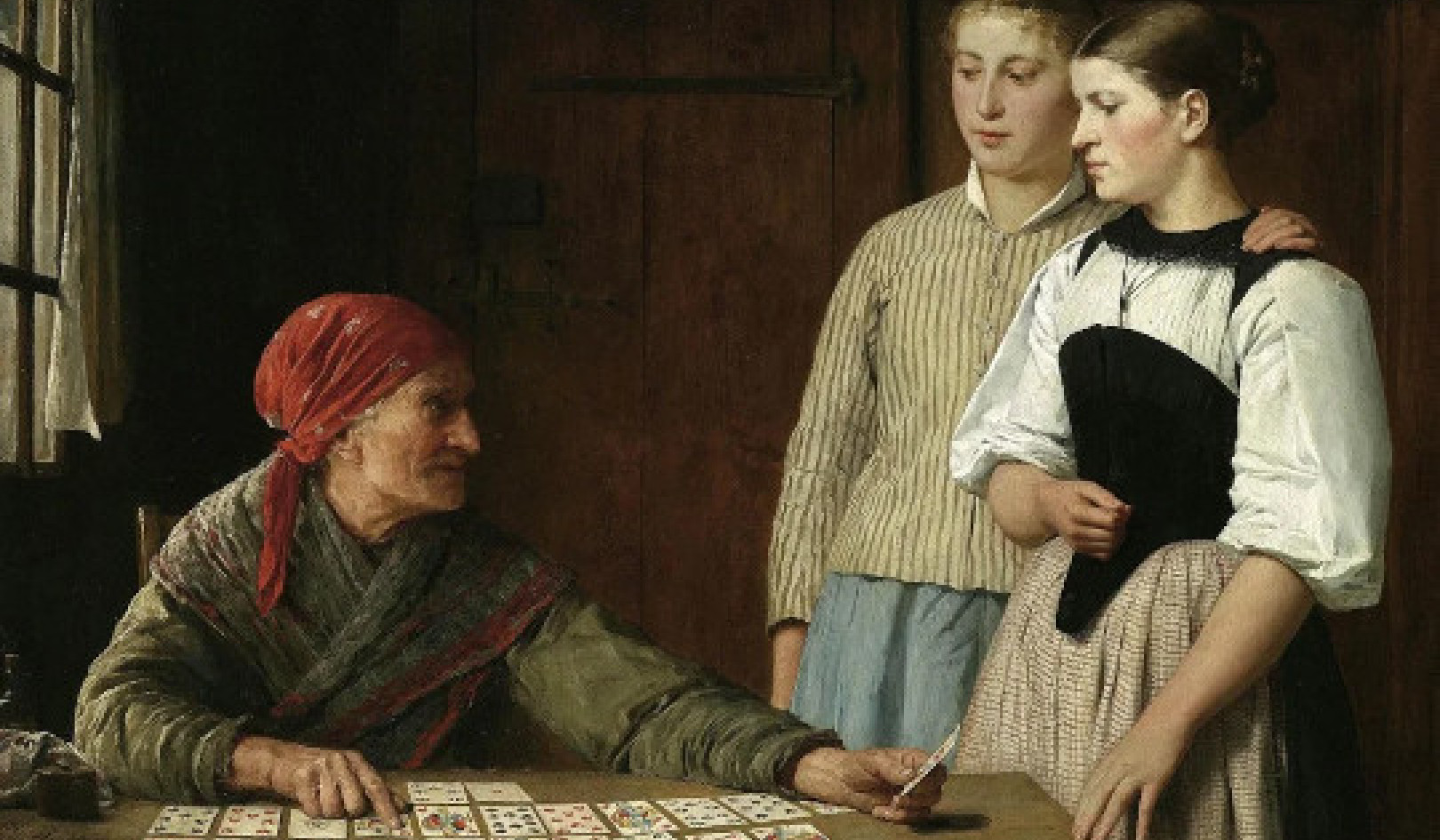
The winds of Grace are always blowing,
we need only raise our sails.
-- Sri Ramakrishna
Charlie:
It’s been said that whatever brings us to face the essential truth of our lives may be called “grace.” Frequently, grace assumes a form that feels more like a curse than a blessing. It can be a life-threatening illness, the loss of a family member, being fired from a job, the kids leaving home (or coming back), divorce, a serious accident, or any number of possible crises that can be encountered in one’s life.
It’s often not until we go out of our mind with pain, terror, longing, rage, grief, confusion, or even joy, that experiencing the grace that liberates us from the tyranny of the fearful mind becomes possible. My year of depression and Linda’s year of cancer treatment provided the grace that brought me to my knees. Although at the time I would have given anything to avoid these crises, I now see that the suffering I endured was a minuscule price to pay for benefits of the outcome.
How can you quantify the value of freedom, inner peace, or the capacity to experience deep love? From my current perspective, I can’t imagine any price that would be too high to pay for these gifts. Although at the time I would have given anything to avoid these ordeals, today I feel only gratitude.
These days gratitude permeates my feelings toward Linda. This feeling is very different from the guilt and dependence that I felt toward her while I was depressed. I have some sense now of how Linda suffered because of my unconsciousness and self-centeredness. I also have come to understand how my fear and unhealed wounds, rather than a basic flaw or deficiency within myself, drove my destructive actions. This recognition has helped me find forgiveness for myself and replace remorse and self-recrimination with acceptance and compassion, two qualities I can now more fully bring forth in my relationship with Linda and with others as well.
I am grateful to Linda for seeing in me that which I couldn’t see in myself and for hanging in there even in the face of her own pain, despite well-intended advice from some of her friends to get out of the marriage. I am grateful for the vision that she held of a life very different from anything that we had known together, different even from anything that I imagined could be possible. Fortunately, Linda’s vision was less limited than mine.
In the reality of the world that we share today, giving to Linda is giving to myself. The experience of sacrifice is one that is often present for me but not from a martyr’s perspective. In the literal definition of the word, to sacrifice is to “make sacred.” There is no feeling of loss on those occasions when I choose to forego my preferences in favor of Linda’s, only a feeling of giving to myself by contributing to her happiness. I know and trust that she does the same for me. The days of keeping score as to whose turn it is to forego their preferences for the other are long gone.
No Longer Willing to Live with a Closed Heart
Still we have times when our life together is something other than a blissful union. We continue to be very different people with different temperaments, dispositions, and points of view. Occasionally, differences arise that do not easily lend themselves to resolution, but I cannot remain angry for long, not because it is wrong but because I am no longer as able as I used to be to tolerate living with a closed heart.
Differences rarely turn into conflicts anymore. Our commitment to working things out in a way that is both respectful and honest is an expression not of an obligation but, rather, of an understanding that to do otherwise causes harm to ourselves, as well as to each other. Although differences don’t necessarily mean conflicts, they do have to be worked out. Sometimes this can be done simply by acknowledging their existence. We can agree to disagree, and quite often, we do.
This simple acknowledgment frequently represents the first step in a process leading to a deeper understanding. Being able to listen deeply and intently to each other has become more important to each of us than winning an argument or dominating the other. We are both becoming increasingly aware of the damage caused by relentless power struggles and the price that we each pay when we play to win rather than to understand.
Living with our Seemingly Irreconcilable Differences
What I consider to be one of the greatest feats that Linda and I have accomplished in our forty-nine years together is not the resolution of our differences but the ability to live with those that seem irreconcilable. We’ve both discovered that even peace can have too high a price. Some things are worth fighting for, worth defending. If peace comes at the expense of one’s dignity, self-respect, or integrity, it is no peace at all, merely an uneasy truce that at some point will inevitably break down. Knowing how to relate skillfully and respectfully, even amid heated emotions, and when to let go is an essential skill for any meaningful relationship. We’ve both learned a lot about this distinction over the years.
From time to time, participants in our workshops have expressed concern that without the struggle for dominance that characterizes most marriages, things might get boring. I tell them that our relationship is anything but boring. Linda and I are continually confronting the question, “How can we make this work even better for both of us?” And neither of us is willing to settle for anything less.
Rather than relating to each other as adversaries vying for scarce resources, something we did for many years, we each value the other’s happiness as much as our own. If anything is boring and unexciting, it is being stuck in the repetitive, defensive postures that lead to replaying predictable and frustrating scenarios.
The connection that Linda and I now share is so close that we can sometimes read each other’s minds and know each other’s feelings without a word being spoken. The irony is that through this remarkably intimate connection, I experience a degree of personal freedom that is unprecedented in my life. The trust that Linda and I now share has enabled each of us to release the many forms of control we exercised over each other in the past. In the absence of the manipulative strategies bred of our own insecurity, a place of enormous spaciousness has opened within each of us and between us. This opening is the place where freedom and commitment meet.
Stepping Away from Codependency: Giving and Receiving
In the past, my love for Linda had been tainted and diminished by the guilt and resentment that are the by-products of codependent relationships. Out of the private and shared hells that we experienced, both Linda and I found parts of ourselves that we had previously disowned or were unaware of. As I came to terms with these hidden aspects of myself, Linda and I became less polarized in our needs for connection and separateness. As I acknowledged my need for closeness and found the courage to risk being emotionally vulnerable with Linda, she became more accepting of her own shadow side, including the parts of her that valued privacy, separateness, and solitude.
As we each became more whole, our dependence on each other to bring each of us into balance diminished, as did the resentment and fear that accompanies any relationship in which each person holds the power for the other’s sense of well-being.
It wasn’t until both Linda and I found ourselves through the lessons of our ordeals that our marriage became truly loving. As we each have healed into our wholeness, our capacity for love has grown. I am now not only more able to give more selflessly to Linda, but I am also able to receive the gifts she bestows on me more graciously. I feel worthy of accepting her offerings in the many forms in which they come: a special gift when there’s no occasion or “reason” for it, a favorite dish lovingly prepared, an unsolicited “I love you,” an unexpected backrub, a compliment, encouragement to take time for myself, and hundreds of other presents that seem to be constantly coming my way.
I also feel worthy of giving to Linda, and I take pleasure in coming up with new and creative ways of surprising her with unexpected delights. I no longer give to her out of a sense of duty, guilt, or obligation. I give out of a deep desire to express my love. I give because I am no longer consumed by buried resentment and unmet expectations. I give out of the joy that I experience in Linda’s happiness. I give because I am enlarged, not diminished, in this process, and my gifts to her are gifts to myself.
Taking delight in the process of giving has strengthened my capacity for generosity in general. In becoming more generous I have found my level of trust in myself, as well as in the world, has grown and deepened. I find myself less concerned with getting and more confident that my needs will all be met, although not necessarily without effort on my part, and not always on my terms.
I have discovered a strange paradox in the process of learning about the power of generosity. As I learned to put aside self-interest to more deeply attune to Linda’s reality, I have experienced a more satisfying kind of well-being than that which comes from the fulfillment of egoistic desires. Until I was thrust out of my self-centered cocoon, I wasn’t able to experience the fulfillment of my deeper longings. Then I was addicted to the need to seek gratification of the superficial wants that kept me empty because my heart was mostly closed.
Extending the Love of the Sacred Partnership
My marriage has become a sacred partnership in which our shared purpose is no longer primarily the seeking of emotional or sexual gratification. Rather, it is an arena in which we can extend the love that is generated between us to include others as well. Our children and grandchildren have been the most immediate benefactors and contributors to this process. Witnessing the metamorphosis of our home from a place of heartache and suffering into a loving sanctuary has been for me the most miraculous part of this transformation. The emotional climate of our home is currently characterized by laughter, respect, and warmth.
We have a significantly lowered threshold for the discord and conflict that we used to see as “normal” for a family. What were previously rationalized as legitimate forms of self-expression were actually cries of pain from unresolved discord and unmet needs. What I had justified as vitality and passion had more to do with the drama and intensity that arise from a state of prolonged unhappiness and resignation.
The distress that had been the norm in the family is now the exception, and our intolerance for avoidable distress has become a powerful motivator for the resolution of our differences. We have all, to a large degree, recovered from the desensitization that came from living in an emotionally volatile or unstable environment.
The effects of the foundation of stability that Linda and I have built have spilled over to other systems of our lives: family, extended family, work, and community. I no longer focus on the “deficiencies” and “shortcomings” of others and focus, instead, on doing my own work. In diverting my attention from my judgment of other people, the problematic aspects of their personalities seem to disappear. It isn’t that everyone else is changing but that I am no longer viewing others from the vantage point of what’s wrong with them. Underestimating the power of this shift toward self-responsibility rather than trying to correct others is impossible.
Some Things Are More Important Than "Knowing"
I’ve learned so much over the course of the sweet and tumultuous times of our marriage, yet the lesson that stands out for me is that I just don’t know. I don’t know how much more time Linda and I have left to spend together. I don’t know how we made it through hell. I don’t know what other challenges await me and who I will become in the process of meeting them. I don’t know why I’m so lucky and what I’ve done to deserve it.
One of the very few things that I do know is that there are some things that are more important than knowing, and this is what Linda has taught me: that matters of the heart are no less important than matters of the mind. She’s known this her whole life.
I used to know it, forgot it, and then remembered again. Who knows? I may forget again. If I do, I’ve at least had this time, this sweet precious time, brief though it may be, in which I was sailing a ship called Grace, and the winds were filling the billowing sail.
©2018 by Linda and Charlie Bloom.
Reprinted with permission of the authors.
Article Source
That Which Doesn’t Kill Us: How One Couple Became Stronger at the Broken Places
by Linda and Charlie Bloom.
 That Which Doesn't Kill Us is the story of a couple's ten-year journey that took them through a series of ordeals that crippled their family and nearly destroyed their marriage. Trained as psychotherapists and practicing relationship counselors, both Charlie and Linda found that their professional training wasn't enough to liberate them from the challenges they encountered. The process of their miraculous recovery reads like a riveting novel. The Blooms' unfolding story provides the essential steps necessary to breathe life back into a failing marriage and move into a deep, loving connection that surpasses even the dreams that each partner had dared to hope to fulfill.
That Which Doesn't Kill Us is the story of a couple's ten-year journey that took them through a series of ordeals that crippled their family and nearly destroyed their marriage. Trained as psychotherapists and practicing relationship counselors, both Charlie and Linda found that their professional training wasn't enough to liberate them from the challenges they encountered. The process of their miraculous recovery reads like a riveting novel. The Blooms' unfolding story provides the essential steps necessary to breathe life back into a failing marriage and move into a deep, loving connection that surpasses even the dreams that each partner had dared to hope to fulfill.
Click here for more info and/or to order this paperback book or purchase the Kindle edition.
About the Authors
 Linda Bloom, LCSW, and Charlie Bloom, MSW, married since 1972, are bestselling authors and the founders and codirectors of Bloomwork. Trained as psychotherapists and relationship counselors, they have worked with individuals, couples, groups, and organizations since 1975. They have lectured and taught at learning institutes throughout the USA and have offered seminars throughout the world, including China, Japan, Indonesia, Denmark, Sweden, India, Brazil, and many other locations. Their website is www.bloomwork.com.
Linda Bloom, LCSW, and Charlie Bloom, MSW, married since 1972, are bestselling authors and the founders and codirectors of Bloomwork. Trained as psychotherapists and relationship counselors, they have worked with individuals, couples, groups, and organizations since 1975. They have lectured and taught at learning institutes throughout the USA and have offered seminars throughout the world, including China, Japan, Indonesia, Denmark, Sweden, India, Brazil, and many other locations. Their website is www.bloomwork.com.
More books by these Authors
at InnerSelf Market and Amazon



























